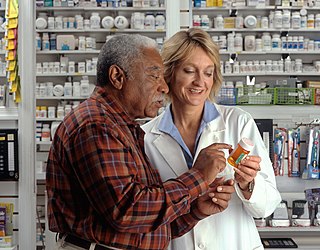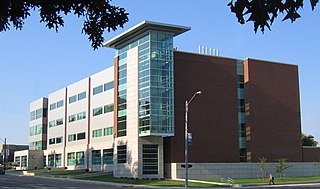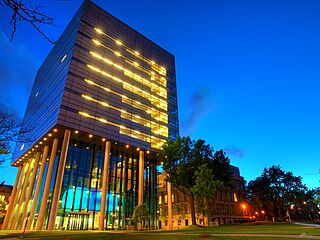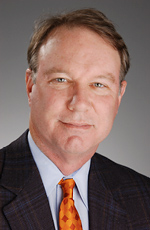
A pharmacist, also known as a chemist or a druggist, is a health professional who specializes in the preparation, properties, effects, interactions and use of medicines. The pharmacist provides pharmaceutical care to patients, as well as basic primary health care services. Using knowledge of the mechanism of action of drugs, the pharmacist understands how they should be used to achieve maximum benefit, minimal side effects and to avoid drug interactions. Pharmacists undergo university or graduate-level education to understand the biochemical mechanisms and actions of drugs, drug uses, therapeutic roles, side effects, potential drug interactions, and monitoring parameters. This is mated to anatomy, physiology, and pathophysiology. Pharmacists interpret and communicate this specialized knowledge to patients, physicians, and other health care providers.

Pharmacy is the clinical health science that links medical science with chemistry and it is charged with the discovery, production, disposal, safe and effective use, and control of medications and drugs. The practice of pharmacy requires excellent knowledge of drugs, their mechanism of action, side effects, interactions, mobility and toxicity. At the same time, it requires knowledge of treatment and understanding of the pathological process. Some specialties of pharmacists, such as that of clinical pharmacists, require other skills, e.g. knowledge about the acquisition and evaluation of physical and laboratory data.
A Doctor of Pharmacy is a professional doctorate in pharmacy. In some countries, it is a first professional degree and a prerequisite for licensing to practice the profession of pharmacy or to become a clinical pharmacist. In many countries they are allowed to practice independently and can prescribe drugs directly to patients. A PharmD program has significant experiential or clinical education components in introductory and advanced levels for the safe and effective use of drugs. Experiential education prepares graduates to be practice-ready, as they already have spent a significant amount of time training in areas of direct patient care and research. A PharmD graduate is entitled to prefix their name with "Dr."

The University of Tennessee Health Science Center (UTHSC) is a public medical school in Memphis, Tennessee. It includes the Colleges of Health Professions, Dentistry, Graduate Health Sciences, Medicine, Nursing, and Pharmacy. Since 1911, the University of Tennessee Health Science Center has educated nearly 57,000 health care professionals. As of 2010, US News and World Report ranked the College of Pharmacy 17th among American pharmacy schools.
The Master of Sciences of Pharmacy (MPharm) is the standard master's degree program in Pharmacy. It is the oldest honourable Diploma (Degree) authorized from the European Faculties of Pharmacy as it takes five years to complete. It is based on a credit system higher than the normal Bachelor of Pharmacy degree. It is different from the American Pharmaceutical Diploma, Doctor of Pharmacy,(PharmD), that takes 4 years to complete. The Faculty is a member of the Association of European Faculties of Pharmacy and its graduates meet all the requirements for the profession as defined by the European Union. In the initial three years students revise and broaden their knowledge of elementary natural and medical subjects to the level required for understanding specific subjects from the field of Pharmacy. Students attend lectures and seminars and take part in practical pharmacy placements. During the last year of study they work on their thesis. The programme is concluded by defending the thesis and taking the final state examination. Then the students are awarded the master's degree. The study programme is compliant with EU directive 2005/36/EC. Graduates awarded the master's degree can later sit for a thorough state exam including an advanced thesis defence. After passing they are awarded the "Testing Board" degree . Graduates can apply for postgraduate after studying several branches of Pharmacy in the five accredited years. After defending their dissertation, submit their researches in their selected branches of Pharmacy and passing the final state examination they are awarded the degree. The master's program is offered in different specialized areas, one major being Clinical Pharmacy. Clinical pharmacy specialization enables pharmacists to deliver higher levels of clinical services. In some countries these specializations are happening with residency programs.

The University of Kentucky College of Pharmacy is a college of pharmacy located in Lexington, Kentucky. In 2016, U.S. News & World Report recognized the UK College of Pharmacy as one of the nation's top ten pharmacy programs.
The basic requirement for pharmacists to be considered for registration is an undergraduate or postgraduate pharmacy degree from a recognized university. In many countries, this involves a four- or five-year course to attain a master of pharmacy degree (MPharm). In the United States of America, students graduating after January 1, 2003, must complete a doctor of pharmacy degree to become a licensed pharmacist. This same requirement has been coming into place in other countries such as Canada and France.

The University of Florida College of Pharmacy is the pharmacy school of the University of Florida. The College of Pharmacy was founded in 1923 and is located on the university's Gainesville, Florida main campus. The college offers the entry-level Doctor of Pharmacy (Pharm.D.) degree as the first professional degree for students entering the profession. The college offered a Working Professional Pharm.D. (WPPD) program for bachelor's-trained pharmacists already in practice with its last cohort of students enrolled in 2016. Additionally, various graduate degrees are offered. The professional program is fully accredited by the American Council on Pharmaceutical Education. Since 2011 the college has been offering online degree programs at the graduate level, such as the Forensic Science Program, Pharmaceutical Chemistry Program and Clinical Toxicology Program. In total the College of Pharmacy received over $28.3 Million in total Research Revenues in 2019.
The University of Pittsburgh School of Pharmacy is the graduate pharmacy school of the University of Pittsburgh in Pittsburgh, Pennsylvania, United States. Founded in 1878, it offers Doctor of Pharmacy (PharmD) and Doctor of Philosophy (PhD) degrees, as well as a residency training program. The school is one of the university's six schools of the health sciences and is ranked in the top 10 of pharmacy schools according to U.S. News & World Report.
Joseph T. DiPiro is professor and Archie O. McCalley Dean of the Virginia Commonwealth University School of Pharmacy.

The Leslie Dan Faculty of Pharmacy is a pharmacy school and an academic division of the University of Toronto. The faculty is located on the northwestern corner of College Street and University Avenue, placing it across from the Ontario Legislative Building and at the entrance to Queen's Park station. It is also situated 1-2 blocks away from four internationally renowned hospitals — The Hospital for Sick Children, Princess Margaret Cancer Centre, Toronto General Hospital and Mount Sinai Hospital. It is part of Toronto's Discovery District.
William Douglas Figg Sr. is an American scientist (pharmacologist) at the National Institutes of Health, Bethesda, Maryland.
Leslie 'Les' Zachary Benet is an influential pharmaceutical scientist heading the UCSF's Benet Lab at the Department of Bioengineering and Therapeutic Sciences and recipient of the Remington Medal for distinguished service to American pharmacy.

A clinical pharmaceutical scientist is a licensed, practicing pharmacist who also functions as an independent researcher in the pharmaceutical sciences. Clinical pharmaceutical scientists are a type of clinician scientist, analogous to physician-scientists.
Hartmut Derendorf was a German-American pharmacist and clinical pharmacologist, a distinguished emeritus professor of pharmaceutics at University of Florida. A significant figure in his field, Derendorf published over 20 papers each with over 100 citations.
Kathleen M. Giacomini is a professor of bioengineering and therapeutic sciences at the University of California, San Francisco. Her work focuses on how genetics affects the efficacy of drugs. She is also the co-Director UCSF-Stanford Center of Excellence in Regulatory Sciences and Innovation for the department of Bioengineering at the University of California, San Francisco.

Julie Ann Johnson is an American clinical pharmacist and translational scientist. She is the Dean and Distinguished Professor in the University of Florida College of Pharmacy and a Member of the National Academy of Medicine. For four consecutive years, she was a Clarivate Analytics Highly Cited Researcher in Pharmacology and Toxicology, indicating she was one of the "world's leading scholars in the sciences and social sciences in the preceding decade."
Howard L. McLeod is an American pharmacogeneticist and implementation scientist specialized in precision medicine.

Mary Violet Relling is an American pharmacogeneticist. Relling's research focuses on pharmacokinetics and pharmacodynamics in children and how genome variability influences a child's response to cancer chemotherapy.
R. Kip Guy is an American pharmaceutical chemist. As of 2016, he is the Dean of the University of Kentucky College of Pharmacy.









